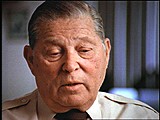You searched for: poland
<< Previous | Displaying results 1476-1500 of 1567 for "poland" | Next >>
-
The United States and the Refugee Crisis, 1938–41
ArticleNazi Germany’s territorial expansion and the radicalization of Nazi anti-Jewish policies triggered a mass exodus. Learn about the US and the refugee crisis of 1938–41.
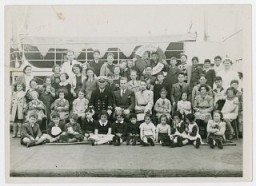
-
Charlene Schiff describes conditions in the Horochow ghetto
Oral HistoryBoth of Charlene's parents were local Jewish community leaders, and the family was active in community life. Charlene's father was a professor of philosophy at the State University of Lvov. World War II began with the German invasion of Poland on September 1, 1939. Charlene's town was in the part of eastern Poland occupied by the Soviet Union under the German-Soviet Pact of August 1939. Under the Soviet occupation, the family remained in its home and Charlene's father continued to teach. The Germans…
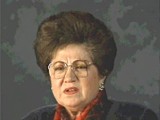
-
Charlene Schiff describes anti-Jewish decrees and anti-Jewish measures after the German invasion of Horochow
Oral HistoryBoth of Charlene's parents were local Jewish community leaders, and the family was active in community life. Charlene's father was a professor of philosophy at the State University of Lvov. World War II began with the German invasion of Poland on September 1, 1939. Charlene's town was in the part of eastern Poland occupied by the Soviet Union under the German-Soviet Pact of August 1939. Under the Soviet occupation, the family remained in its home and Charlene's father continued to teach. The Germans…
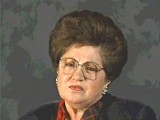
-
Felix Horn describes a hiding place in Warsaw
Oral HistoryFelix was born to an assimilated Jewish family in Lublin, Poland. His father was a locksmith and his mother was a singer. Following the German invasion of Poland on September 1, 1939, Felix fled east to Rovno and then to Soviet-occupied Lvov, where he was accepted at a medical school. After the German invasion of the Soviet Union in June 1941, Felix was taken to a labor camp. He escaped and returned to Lublin, and found that his family had been forced into the ghetto established there. After the…
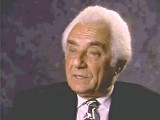
-
Felix Horn describes escaping from the Majdan Tatarski ghetto and seeking shelter
Oral HistoryFelix was born to an assimilated Jewish family in Lublin, Poland. His father was a locksmith and his mother was a singer. Following the German invasion of Poland on September 1, 1939, Felix fled east to Rovno and then to Soviet-occupied Lvov, where he was accepted at a medical school. After the German invasion of the Soviet Union in June 1941, Felix was taken to a labor camp. He escaped and returned to Lublin, and found that his family had been forced into the ghetto established there. After the…
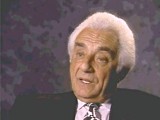
-
Nazi Territorial Aggression: The Anschluss
ArticleThe Anschluss, Germany's annexation of Austria in March 1938, was the Nazi German regime’s first act of territorial aggression and expansion. Learn more.
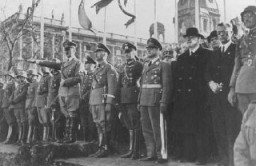
-
Life After the Holocaust: Aron and Lisa Derman
ArticleAfter WWII and the fall of the Nazi regime, Holocaust survivors faced the daunting task of rebuilding their lives. Listen to Aron and Lisa Derman's story.
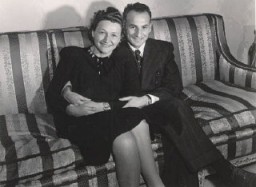
-
The Nazi Olympics Berlin 1936
ArticleThe 1936 Olympics in Berlin under Adolf Hitler's Nazi dictatorship were more than just a worldwide sporting event, they were also a show of Nazi propaganda.
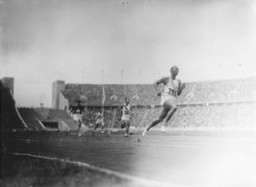
-
The Security Police (SiPo)
ArticleThe Security Police (Sicherheitspolizei, SiPo) was a German police organization created by Heinrich Himmler. Learn about its origin and role in the Holocaust.
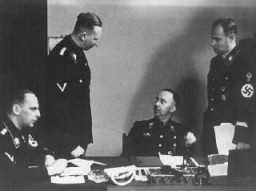
-
Air war in Flanders: Western Campaign
FilmThe Junkers (Ju) 87, known as the "Stuka," spearheaded the Blitzkrieg ("lightning war") attacks that were decisive in the western campaign in 1940. Stuka dive-bombers closely supported German forces on the ground. They destroyed enemy strong points, aircraft, and airfields, and spread panic in rear areas. Although slow and easily shot down by Allied fighters, the Stukas proved devastatingly effective in the German invasions of Poland and western Europe, where Germany enjoyed air superiority. Stuka…
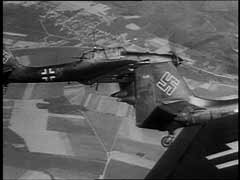
-
Bella Jakubowicz Tovey describes a British soldier's visit while she was hospitalized in Bergen-Belsen after liberation
Oral HistoryBella was the oldest of four children born to a Jewish family in Sosnowiec. Her father owned a knitting factory. After the Germans invaded Poland in 1939, they took over the factory. The family's furniture was given to a German woman. Bella was forced to work in a factory in the Sosnowiec ghetto in 1941. At the end of 1942 the family was deported to the Bedzin ghetto. Bella was deported to the Graeben subcamp of Gross-Rosen in 1943 and to Bergen-Belsen in 1944. She was liberated in April 1945.
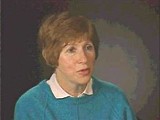
-
Bella Jakubowicz Tovey describes a meeting between her father and the Jewish council leader in Sosnowiec
Oral HistoryBella was the oldest of four children born to a Jewish family in Sosnowiec. Her father owned a knitting factory. After the Germans invaded Poland in 1939, they took over the factory. The family's furniture was given to a German woman. Bella was forced to work in a factory in the Sosnowiec ghetto in 1941. At the end of 1942 the family was deported to the Bedzin ghetto. Bella was deported to the Graeben subcamp of Gross-Rosen in 1943 and to Bergen-Belsen in 1944. She was liberated in April 1945.
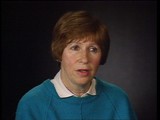
-
Alisa (Lisa) Nussbaum Derman describes partisan activities
Oral HistoryLisa was one of three children born to a religious Jewish family. Following the German occupation of her hometown in 1939, Lisa and her family moved first to Augustow and then to Slonim (in Soviet-occupied eastern Poland). German troops captured Slonim in June 1941, during the invasion of the Soviet Union. In Slonim, the Germans established a ghetto which existed from 1941 to 1942. Lisa eventually escaped from Slonim, and went first to Grodno and then to Vilna, where she joined the resistance movement. She…
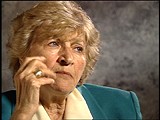
-
Leo Schneiderman describes conditions on a freight car during deportation from Lodz to Auschwitz
Oral HistoryThe Germans invaded Poland in September 1939. Leo and his family were confined to a ghetto in Lodz. Leo was forced to work as a tailor in a uniform factory. The Lodz ghetto was liquidated in 1944, and Leo was deported to Auschwitz. He was then sent to the Gross-Rosen camp system for forced labor. As the Soviet army advanced, the prisoners were transferred to the Ebensee camp in Austria. The Ebensee camp was liberated in 1945.
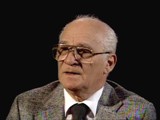
-
Kurt Klein describes some of the difficulties involved in emigrating from Germany
Oral HistoryAs Nazi anti-Jewish policy intensified, Kurt's family decided to leave Germany. Kurt left for the United States in 1937, but his parents were unable to leave before the outbreak of World War II. Kurt's parents were eventually deported to Auschwitz, in German-occupied Poland. In 1942, Kurt joined the United States Army and was trained in military intelligence. In Europe, he interrogated prisoners of war. In May 1945, he took part in the surrender of a village in Czechoslovakia and returned the next day to…
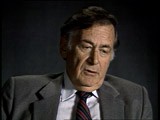
-
Sam Itzkowitz describes forced labor in the gravel pits of Auschwitz
Oral HistoryThe Germans invaded Poland in September 1939. When Makow was occupied, Sam fled to Soviet territory. He returned to Makow for provisions, but was forced to remain in the ghetto. In 1942, he was deported to Auschwitz. As the Soviet army advanced in 1944, Sam and other prisoners were sent to camps in Germany. The inmates were put on a death march early in 1945. American forces liberated Sam after he escaped during a bombing raid.
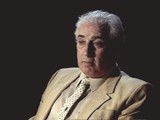
-
Julian Noga describes conditions in Flossenbürg
Oral HistoryJulian's Catholic parents had settled in the United States, but his mother returned to Poland. In 1939, Julian was deported to Austria to do farm labor after he was caught for hiding a rifle. On the farm he met the landowner's daughter, Frieda, his future wife. He was arrested in 1941 because relationships between Austrians and Poles were considered illegal and in 1942 he was deported to the Flossenbürg camp in Germany. During a forced march in 1945, he was liberated by US forces. Julian and Freida…
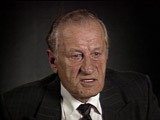
-
Selma (Wijnberg) Engel describes forced labor sorting the clothing and possessions of people deported to Sobibor
Oral HistorySelma was the youngest of four children born to Jewish parents. When she was 7, Selma and her family moved to the town of Zwolle where her parents ran a small hotel. When the Germans invaded the Netherlands in 1940, they confiscated the hotel. The family had to live in a poor Jewish section of the town. Selma went into hiding but was betrayed and then sent to the Westerbork camp. In April 1943 she was deported to Sobibor, where she worked in the clothes sorting area. There, the prisoners tried to pocket…
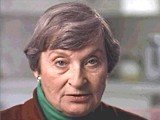
-
Bart Stern describes the role of friendships in survival at Auschwitz
Oral HistoryFollowing the German occupation of Hungary in March 1944, Bart was forced into a ghetto established in his home town. From May to July 1944, the Germans deported Jews from Hungary to the Auschwitz killing center in occupied Poland. Bart was deported by cattle car to Auschwitz. At Auschwitz, he was selected to perform forced labor, drilling and digging in a coal mine. As Soviet forces advanced toward the Auschwitz camp in January 1945, the Germans forced most of the prisoners on a death march out of the…
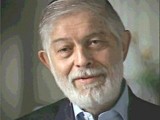
-
Ruth Webber describes escaping from a selection held in the Auschwitz infirmary
Oral HistoryRuth was four years old when the Germans invaded Poland and occupied Ostrowiec. Her family was forced into a ghetto. Germans took over her father's photography business, although he was allowed to continue working outside the ghetto. Before the ghetto was liquidated, Ruth's parents sent her sister into hiding, and managed to get work at a labor camp outside the ghetto. Ruth also went into hiding, either in nearby woods or within the camp itself. When the camp was liquidated, Ruth's parents were split up.…
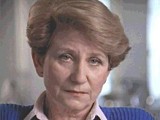
-
Ruth Webber describes her mother's efforts to ensure her children's survival
Oral HistoryRuth was four years old when the Germans invaded Poland and occupied Ostrowiec. Her family was forced into a ghetto. Germans took over her father's photography business, although he was allowed to continue working outside the ghetto. Before the ghetto was liquidated, Ruth's parents sent her sister into hiding, and managed to get work at a labor camp outside the ghetto. Ruth also went into hiding, either in nearby woods or within the camp itself. When the camp was liquidated, Ruth's parents were split up.…
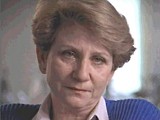
-
Thomas Buergenthal describes being reprieved from a massacre of children while he was in a forced-labor camp in Kielce
Oral HistoryThomas's family moved to Zilina in 1938. As the Slovak Hlinka Guard increased its harassment of Jews, the family decided to leave. Thomas and his family ultimately entered Poland, but the German invasion in September 1939 prevented them from leaving for Great Britain. The family ended up in Kielce, where a ghetto was established in April 1941. When the Kielce ghetto was liquidated in August 1942, Thomas and his family avoided the deportations to Treblinka that occurred in the same month. They were sent…
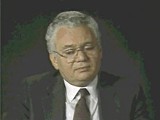
-
Aron (Dereczynski) Derman describes deportations from the Grodno ghetto in November 1942
Oral HistoryAron was born to a middle-class Jewish family in Slonim, a part of Poland between the two world wars. His parents owned a clothing store. After studying in a technical school, Aron worked as a motion-picture projectionist in a small town near Slonim. The Soviet army took over Slonim in September 1939. War broke out between Germany and the Soviet Union in June 1941. Aron returned to Slonim. The Germans soon occupied Slonim, and later forced the Jews into a ghetto. Aron was forced to work in an armaments…
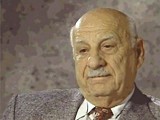
-
Bart Stern describes deportation to Auschwitz
Oral HistoryFollowing the German occupation of Hungary in March 1944, Bart was forced into a ghetto established in his home town. From May to July 1944, the Germans deported Jews from Hungary to the Auschwitz killing center in occupied Poland. Bart was deported by cattle car to Auschwitz. At Auschwitz, he was selected to perform forced labor, drilling and digging in a coal mine. As Soviet forces advanced toward the Auschwitz camp in January 1945, the Germans forced most of the prisoners on a death march out of the…
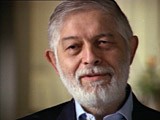
-
Leopold Page describes the liquidation of the Krakow ghetto and escaping from the ghetto
Oral HistoryLeopold was a teacher in Krakow, Poland, when World War II began in 1939. While serving in the Polish army, he was captured by Germans. Leopold escaped from a prisoner-of-war transport. Soon after, he met the German industrialist Oskar Schindler. The two became friends. Leopold was forced to live in the Krakow ghetto. He later worked in Schindler's factory in Bruennlitz. He and the other Jews who worked there were treated relatively well and protected from the Nazis. After the war, Leopold moved to the…
